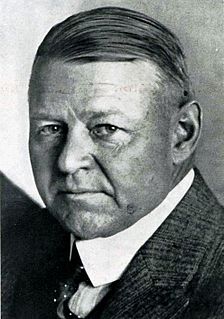A Quote by Mignon McLaughlin
Boredom is often the cause of promiscuity, and always its result.
Related Quotes
It appears to me that one great cause of our difference in opinion on subjects which we often discuss is that you have always in mind the immediate and temporary effects of particular changes, whereas I put these effects quite aside, and fix my whole attention on the long-term effects that will result from them.
One would always want to think of oneself as being on the side of love, ready to recognize it and wish it well -but, when confronted with it in others, one so often resented it, questioned its true nature, secretly dismissed the particular instance as folly or promiscuity. Was it merely jealousy, or a reluctance to admit so noble and enviable a sentiment in anyone but oneself?
































